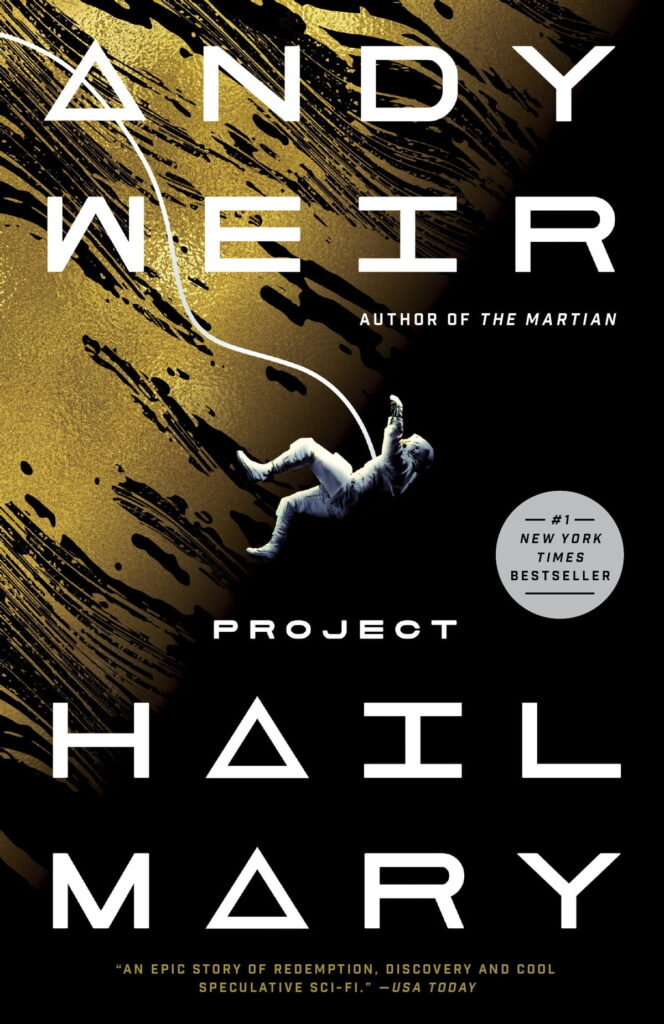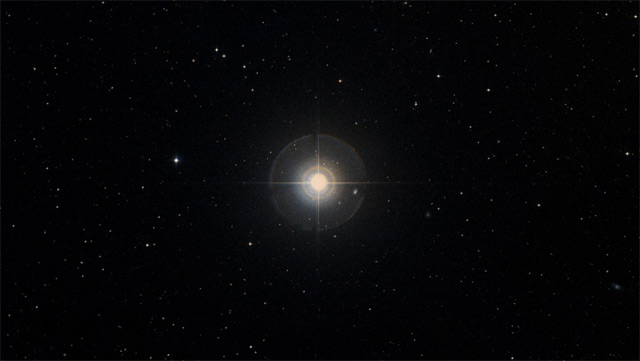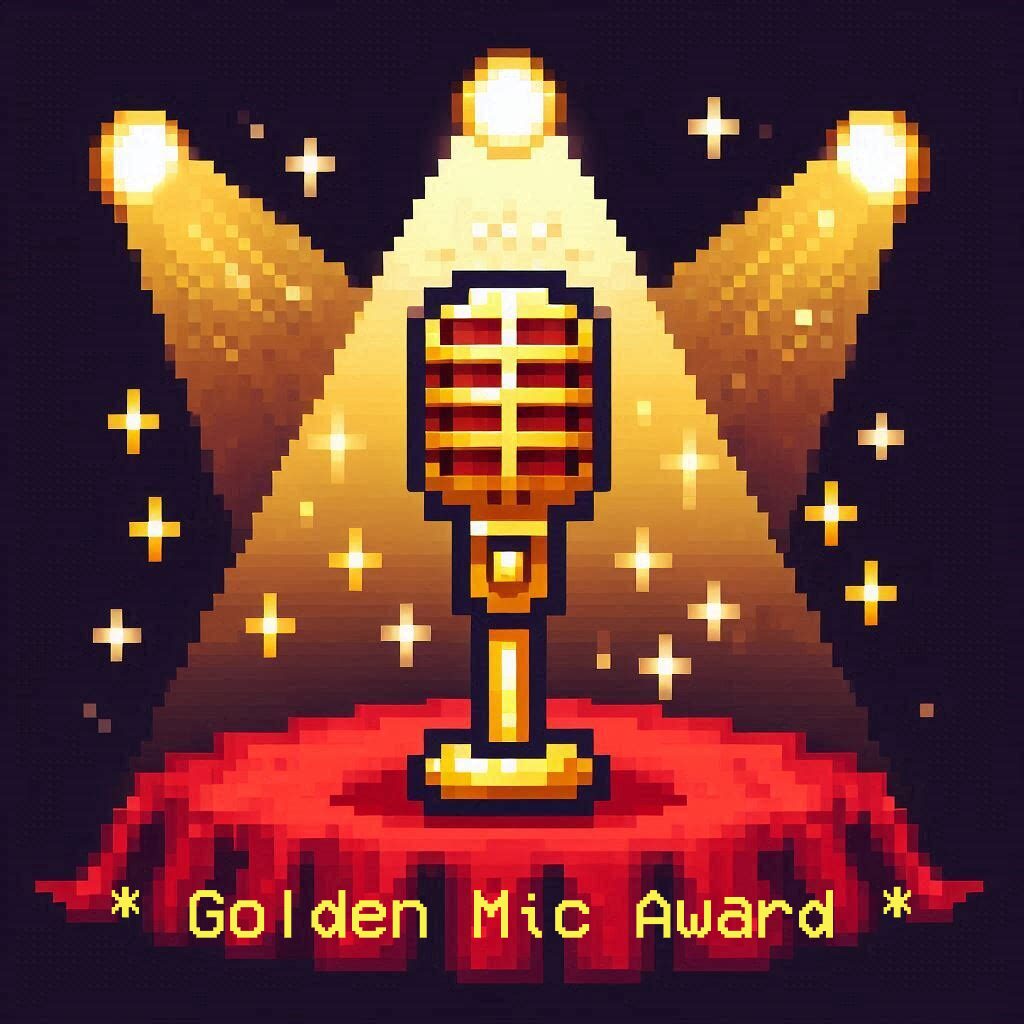
This is another one that came out a while ago, but it’s what we chose to listen to on our most recent family road trip. Project Hail Mary (eBook) by Andy Weir is a fantastic book with a truly great audiobook production. As Rocky would put it is, “Awesome, awesome, awesome!”
I’m going to keep playing around with the format these reviews to see what works best. Please leave comments below if you have thoughts! Let’s get into it . . .
The basics: formulaic, but that’s not bad
The setup and story progression of Hail Mary are very similar to The Martian. Present a sequence of nigh impossible-to-survive problems that somehow progressively get worse. Our intrepid science genius and hero manages to outthink death at every turn, surviving when he shouldn’t.
You know what, though? It really works. It’s damn inspiring to read a book where the hero is a likable, relatable genius who is just trying to do his best. In the case of Hail Mary, the stakes aren’t just the survival of Ryland Grace (one of our two main science heroes and first-person narrator), but of the survival of humanity itself. In this way, Hail Mary ups the ante on The Martian by quite a bit, and it’s really engaging.
There’s something about the way Weir writes Hail Mary (and The Martian before it) that manages to jam a little hope into the reader. He makes you feel like humanity has a real chance–that we can somehow get past all of this hostility, stupidity, and strife to come out better on the other side. So, if you’re looking for something to make you feel better about the world that is both well written and entertaining, Hail Mary is an excellent choice.
How is it as an audiobook? Oh, it’s soooo good. Ray Porter’s performance is, and please forgive me, stellar! I read this in its written form first, and listened to it later, and the Porter perfectly fits how I imagined Grace would sound. Oh, and how they handle Rocky (more on him below) in the audiobook is brilliant!


Very cool extraterrestrial life and a mission to save Sol
The first aliens we meet are microscopic wonders (not Rocky) that are literally draining the sun’s energy to fuel their galaxy-spanning life cycle. They’re called Astrophage, and the idea behind them is just plain fascinating, well thought out, and some of the best, hard Sci-Fi humans-meet-aliens writing I’ve read. That bit about sucking the sun dry, though? That’s a problem–like a world-ending, we’re all gonna die horribly kind of problem, and it’s our intrepid science hero’s quest to save the Solar System.
Ryland Grace, a.k.a. Captain Science, is an 8th grade science teacher, but we don’t learn that right away. He wakes up with amnesia, which is a side-effect of him being put into an artificial coma for the duration of a near lightspeed flight to a different star system (Tau Ceti). The goal is to find out why Tau Ceti is not being drained by the Astrophage like Sol (Earth’s sun).
Because the story kicks off with Grace, in space, on a space ship, doing science stuff, his creds are pretty much immediately established. I remember thinking, “well, this guy must be some badass super-astronaut.” He reinforces this by doing badass astronaut-scientist things, solving problem after problem. It takes a while, but pretty soon we understand more about the Astrophage, and more about the mission to stop them from eating Sol.

Side note: You can explore the Tau Ceti system on NASA’s website (and it’s awesome). NASA really needs to supply embed codes . . .
Inventive way to do character development
When we first meet Ryland Grace, we don’t even know his name is Grace, which means we get to learn who he is at the same time Grace learns who Grace is. Somehow, Weir does this while managing to side-step the whole “amnesia is extremely cliché” problem. It doesn’t feel cliché, because it’s well written, and strategically reveals bits about the character that drive both his development and the story.
Discovering Grace and the mission he’s on in lock-step with Grace himself makes for an extremely engaging read because, as it progresses, we readers get to experience a man coming to term with his own flaws. Because he’s on a literal mission to save two entire sentient species, he has to be brutally honest with himself because he has no time to hide from who he is. It’s Grace owning these flaws and pushing through them that makes me love the guy. Weir manages to pull off getting me to empathize with a super-genius, savior of humanity, explorer of new star systems even though I won’t ever have the chance to do any of that.
As Grace remembers more of his past (including his own name), we learn about his time teaching, then researching the Astrophage. Turns out, he was once a young, rising star of the scientific community, but he writes a paper that most of that community thinks is nonsense, so he quits to become an 8th grade science teacher. Project Hail Mary recruits him because of his poorly received research because, as it turns out, he might have been right about some of it.
From there, he basically kicks major butt at science, ending up working with and training up other scientists, engineers, and astronauts on Astrophage. He becomes the right-hand man of the program, and, eventually, is forced to go on the years’ long suicide mission to save Earth (there’s only enough fuel for a one-way trip). He was never supposed to go to Tau Ceti, and had to be dragged, kicking and screaming, onto the Hail Mary (the ship). The amnesia is the result of a drug designed to give him temporary memory loss upon waking from the coma so that he’d be wholly invested in saving humanity before he remembered to be furious about being sent to die for his people.
Oh, and then there’s Rocky
Grace also gets to make first contact with sentient alien life, which gives him naming rights. He meets Rocky, who happens to be the sole survivor of their own species’ attempt to save their world from Astrophage. Rocky is in the Tau Ceti system for the same reasons as Grace: they noticed that 40 Eridani A (their star) was getting eaten, but Tau Ceti was not.
Remember when I mentioned that discovering Astrophage was some of the best first contact fiction I’ve ever read? Meeting Rocky is definitely at the top of that particular sci-fi pile. The way Rocky and Grace figure out how to communicate and learn enough about each other to work together is just awesome.

It’s also another place the audiobook shines. Rocky communicates in musical chords, “singing” many notes at the same time, well beyond the capabilities of any human vocal chords. The unique tonal combinations are used to form words. The audiobook plays the sounds Rocky makes and it’s, for lack of a better descriptor, really freaking cool. Once Grace learns how to decipher the musical language, the chords play under the narration, which is an excellent effect. It’s just prominent enough to add a lot to the performance, but not so overblown that it’s distracting. It’s brilliant, and I love it.
Side note: No, Rocky will not look like Emma Stone as Rocky is a pentagonally symmetrical being with a rocky carapace (well played, Andy Weir).
The good, good, good, bad, and the meh of Hail Mary

The good, good, good: Like I said above: the character building and narrative are both excellent, and the speculative writing on first contact and alien life is just plain genius. Seriously, even reading it a second time, I was absolutely blown away with the balance of detailed science-stuff, story, and the opportunity to learn about these very intriguing aliens. ?
The audiobook performance is one of my favorites of all time. Ray Porter’s voice acting is exactly right for Ryland Grace, and the way Rocky speaks will probably make you smile and say “that’s really cool!”
The characters in the book are unique and differentiated in a way that I think shows Weir’s growth as a writer. Rocky manages to feel alien, but relatable (tricky, that). Grace feels like just a normal dude who happens to be an extraordinarily intelligent human being that’s really good at science. Grace’s character progression drives the story forward as he discovers things about himself and the Astrophage he’s there to stop.
There’s also the hope. This book is hopeful at a time where I think the world really needs more hope. It shows what humanity can do when we’re smart enough to quit fighting each other and work together for a common good. In The Martian, we all come together to save Mark Watney. In Hail Mary, it’s to save the entire planet and all of humanity along with it so that tingly feeling of “we can do this” is even stronger.
It’s all really well done, and I can’t recommend it enough . . . to most people.
The bad: Like The Martian, there’s a lot of technical, science stuff in here. I think Hail Mary does a slightly better job of weaving it into the story, and pulling the reader along with the discoveries, but it’s still there.
Personally? I kind of love it. Hail Mary is one of those books where you start to feel like you’re getting smarter as you read it. However, the technical stuff isn’t for everyone. It’s not a book like The Rise and Fall of D.O.D.O., where there’s a lot of technical exposition to get the reader up to speed on things like quantum mechanics, so I feel like it’s less of a turn-off for audiences who don’t want to be taught about things like measuring gravity with a pendulum.
If you liked The Martian, but wished it had less technical exposition or that it fit better into the story, then you’re probably going to like Hail Mary even more (my wife is in this camp). If you don’t like The Martian because of the technical bits, then you might not like Project Hail Mary either.
The meh: Honestly? There’s nothing meh about this book that I can think of. If you’re even tangentially in the target audience for a book like this (people that like hard Sci-Fi and don’t want to read something that’s horribly depressing), it’s an easy book to recommend.
The verdict
I have read and listened to a lot of hard Sci-Fi as it’s one of my favorite genres. Project Hail Mary is easily S-tier for me. I really like it.
The highlights:
- Really, really well done first contact scenarios
- Awesome alien species that feel original
- A good amount of character depth for the relatively small cast
- There’s both a sense of urgency and mystery as Grace learns who he is and what he’s doing
- While it’s heavy on science, it’s threaded throughout the story so that it doesn’t slow down either the narrative or character progression
- The detailed science lessons might be a turn-off for some

My ratings (out of 5):
Quinton’s personal score: 5
Wider audience score: 4
Audiobook performance: 5 (and a Wordcaster Golden Mic*)
*I just made the whole “Golden Mic” thing up because this book is just that good, but I think I’ll keep it around for future reviews.

Comments
Pingback: Audiobook review: The Mercy of Gods by James S. A. Corey - Wordcaster